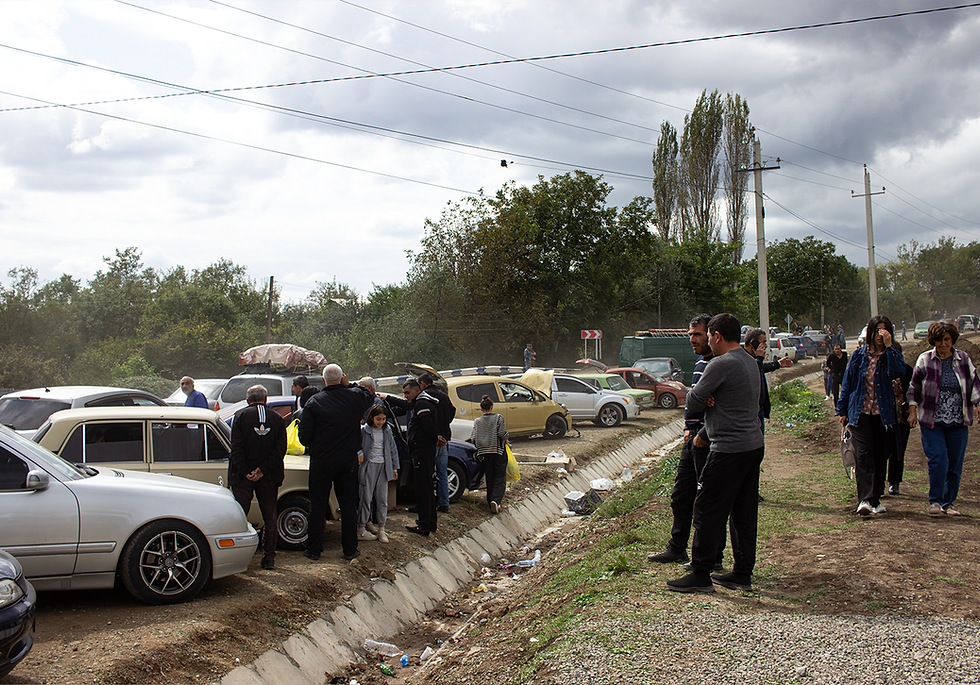Armenian Government Suspends Controversial Surveillance Camera Law Due to Privacy Concerns
- The Armenian Report Team

- Nov 11, 2024
- 2 min read

The Armenian government has put on hold a proposed law that would require small businesses, like shops and restaurants, to install surveillance cameras and grant the police access to their footage. This decision came after the plan drew strong criticism from local and international groups, who raised concerns about privacy and the overreach of state surveillance.
The draft law, introduced by Armenia’s Interior Ministry, would mandate that private businesses with a commercial space of at least 50 square meters install closed-circuit television (CCTV) cameras. According to ministry officials, this measure aims to help law enforcement monitor public spaces more effectively to deter street crime and improve public safety.
Prime Minister Nikol Pashinyan’s cabinet initially approved the bill earlier this year, despite caution from Armenia’s own Justice Ministry’s Personal Data Protection Agency. The agency warned that the measure posed “significant risks to the security of personal data” and represented an “excessive restriction” on citizens’ privacy rights. Echoing these warnings, Armenia’s Central Bank, civil society organizations, and opposition groups raised similar concerns.
A key advocate of the proposed surveillance system, Deputy Interior Minister Arpine Sargsyan, defended the draft law in parliament, where it passed a preliminary vote in June. She argued that, because the cameras would be installed in public areas, they would not infringe on individual privacy. Sargsyan claimed the proposal would strike a balance between public safety and privacy rights.

Despite these arguments, critics worried about the implications of widespread surveillance. Opponents feared that constant monitoring could limit individual freedoms and create a “chilling effect” on daily activities in public spaces. Human Rights Watch (HRW), a leading international rights group, issued a statement less than two weeks before the government withdrew the bill. HRW argued that mass surveillance in public areas was “unjustified” and threatened privacy, freedom of expression, and other civil liberties. Giorgi Gogia, HRW’s Associate Director for Europe and Central Asia, warned that this level of surveillance could suppress civil and political rights.
One of the government’s motivations behind this proposed law is Armenia’s rising crime rate. Since the 2018 “velvet revolution” that put Prime Minister Pashinyan into office, law enforcement agencies have faced mounting pressure to control crime, particularly street crimes and drug trafficking. Law enforcement data shows a sharp increase in drug-related cases, which more than doubled last year alone.

This uptick in crime has been a point of criticism for the Armenian police, with both opposition and some pro-government lawmakers questioning the effectiveness of current crime-fighting measures. The government initially saw surveillance as a way to address these concerns but has since recognized the need to weigh public safety against privacy.
In a public statement, the Interior Ministry announced that it had withdrawn the bill for further review, citing the lack of a “broad consensus” among Armenians on the issue. The ministry expressed willingness to continue discussions with civil society organizations and critics to refine the proposal in a way that aligns with the public’s concerns.
This development is a pause, not necessarily an end, to the debate over surveillance in Armenia. The government appears open to revising the bill or pursuing alternative strategies that might bridge the gap between public safety and privacy rights.






Comments